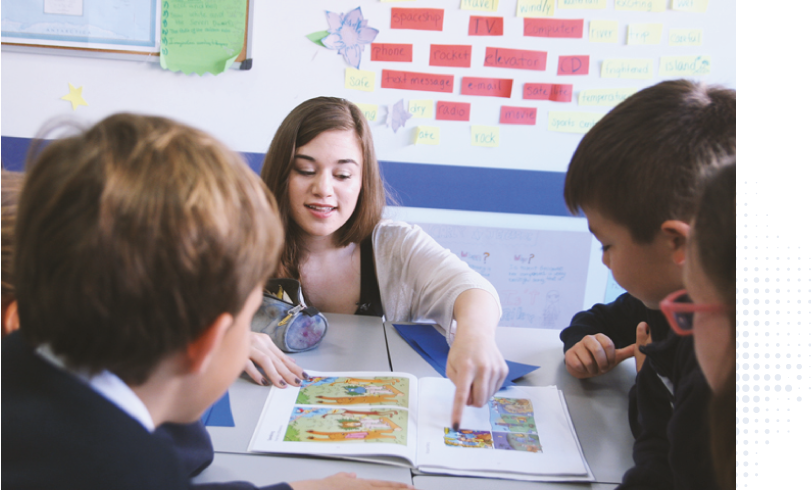Here in Spain, there is a widely known expression: “No pasa nada” (or if you’re in Cataluña: “No pasa res“), which both translate to “don’t worry” in English. People like to use it for everything. I’ll give you a few examples… “I forgot my wallet in the house, can you pay for me?” “Of course, no pasa nada“. “Oh! My car isn’t starting”. “No pasa nada, I’ll call someone to help”. “Mom! I dropped one of your dinner plates and it broke. I’m really sorry”. “No pasa nada, it was an accident”. Likewise, … “I can’t speak Spanish and I want to teach English in Spain, but I’m really nervous because I have a low level of the language…”. Of course, ¡¡No pasa nada!!
Are you noticing a trend? There is nothing to worry about!
Having taught and lived here for almost two years now, I can assure you that Spanish is not a requirement to teach English in Spain. I know you may be wondering… What about in the classroom? And in the outside world? Again, read on and don’t forget: ¡¡No pasa NADA!!
No Spanish in The Classroom
In the classroom, especially with children, it can be very chaotic and stressful. Kids have loads of energy and could probably be jumping and singing and yelling 24/7 if there weren’t rules in school against that. Add a language barrier and a wide range of interests, and you’re in for a party!
However, because our role is to help teaching English, using Spanish in the classroom is not an option when things get hard. Although I can speak the language, I have learned that there are a few better tips and tricks. Here they are:
1. Always, always, always let students help students.
There are so many times in the classroom where I explain a game or activity and my kids look at me like I have 10 heads saying “¿¿Qué??, ¿¿qué ha dicho?? No entiendo nada.” However, in the cluster of kids that don’t understand, I usually always have at least one student who does and will kindly translate to the others, allowing us to begin with everyone on the same page and me not uttering a word of Spanish.

vocabulary!
2. Pictures, cards, comics, flashcards, and videos.
Anything with photos or visuals, that can correspond to the vocabulary you are teaching with the teacher, is really great for language learning. With a lot of my students, I have to assume that they may have never heard of a word in their life and what better way to explain that than with a photo? Flashcards have never failed me and they are a great way to teach and guarantee that Spanish will not be used.
3. Begin the school year by telling all your students that you simply do not speak or understand Spanish.
This will encourage your students to find other creative ways to tell you things and learn more during the process. In my experience, once they are aware that you can communicate with them in their first language, it makes them increasingly less motivated to speak English.
Immerse Yourself! Life Outside of The Classroom
While it’s not necessary to speak Spanish to teach in Spain, you may find your experience more enjoyable if you immerse yourself in the language and try to learn as much as you can. Maybe it is your unique opportunity of living in another country and speaking to the locals all around you. If so, here are 6 pieces of advice on hoy to learn Spanish in Spain. And 7 tips to start learning Spanish being a Language Assistant.
There are so many chances to practice Spanish even in the most unlikely places. If you commute to your school, try striking up conversations on the bus or train- it may result in a new friendship or language partner. Go to intercambios in your area to find locals who want to practice their English, and in turn, they can help you with your Spanish. Another unlikely place to learn a lot of Spanish is in the classrooms and halls of your school!

Listen to The Kids
I know we talked about not speaking Spanish during lessons, but no one said you can’t listen to the kids talking and asking questions! During patio and break times, they will be with their friends speaking in their own language and playing. This is a great time to join in or simply observe.
In addition, the relationships you have with the teachers at your school may largely be in Spanish, as every teacher will most likely have varying levels of English (some very low, some higher). I have learned so much just by listening to my students and asking questions to the teachers. It’s also a great way to show you truly care and want to be fully immersed in this amazing experience. And maybe if you’re placed in or around Barcelona, you’ll have the opportunity to learn some Catalan too!











One Response